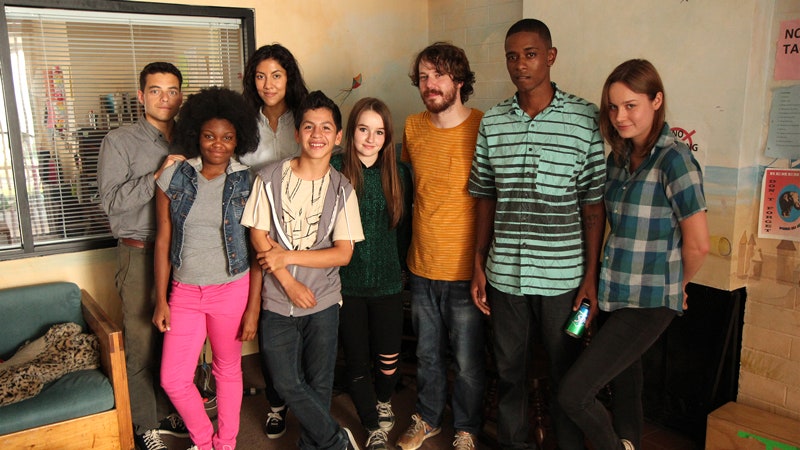Cretton wanted to make Stanfield the lone holdover from the original cast, or at least give him an audition. But the actor wasn’t checking his email and didn’t appear to have a phone number. Cretton was confident he’d turn up, though. He hoped he would turn up. He was starting to worry he might not turn up.
“I think Destin was under the impression—and I think other people too, because I’d read this—that I had quit acting,” Stanfield says now over the phone. “But it wasn’t that I had quit, I just wasn’t booking anything. For a long time, I was just failing.”
Cretton had heard that Stanfield had dropped his manager and retreated home to Victorville, California, a grungy, sun-baked desert city 90 minutes east of Los Angeles. But that’s where the trail had gone cold. He sent an email to the only address he had, but a month passed without an answer. One of his producers, Ron Najor, his roommate at the time, spotted a profile that Stanfield had created on a local message board for actors, so they tried posting a reply, hoping to get his attention. Nothing. His investors were pushing him to cast someone else. “I was getting really desperate,” Cretton says.
Then one day, in the same ineffable, serendipitous, cosmic oddball way that has become Stanfield’s trademark onscreen and in real life, he rematerialized out of thin air. Cretton’s email pinged. A day later, the actor was on his doorstep, mellow and unhurried, like he’d arrived right on cue.
Cretton, who is half Japanese American, was raised in Hawaii, “which is arguably one of the most diverse states in our country. That’s where I feel most comfortable—just, like, a big mix of cultures,” he says. “And to me that’s the heart of Short Term 12. It’s this big mix of very different backgrounds and cultures and beliefs, and somehow—because they all happen to be in the same space—they’ve just decided to figure out how to create a family together.” The eager staff pretends they’re keeping it together inside, and the talented misfit kids yearn for someone to see their worth. That also happens to be the story of the people making the movie, a chance rhyme that becomes unmistakable from this distance a decade later.
D ! D! C!” Brie Larson chants when Cretton joins the Zoom. He laughs and thrusts up some death-metal fingers. “It seems only right that this Zoom would have my bed in the back,” she says, jumping right in, as the room behind her gradually fills with morning sun. The jumbled white duvet on her unmade bed looks like a cozy prop in a Downy commercial. “This is how it all began—doing a Zoom with Destin where I could see his messy bed behind him.” She was 22 then. The spring of 2012. “Well, I guess it wasn’t Zoom—it was Skype, right? Rest in peace, Skype.”
“And that was a messy-ass bed,” Cretton says. “When I lived in the most disgusting apartment maybe in Los Angeles.”
Back then, Larson was calling from the Athens, Georgia, set of the well-received indie The Spectacular Now, in which she had a small ex-girlfriend role. That was her career at the time, she says: landing small roles in small indies, getting callbacks for bigger parts she never got. There’s no magical story about how she came across Cretton’s script for Short Term 12. Her agent sent it to her. But he also wanted her to meet with Cretton. “He was always trying to get me to meet with people around my age,” she says. “He was like, ‘You should have friends—you’re always just alone.’ ”
Both Larson and Cretton were homeschooled as kids, Larson in Sacramento and Cretton in Maui, so her agent thought maybe they’d hit it off. Larson was hungry for a leading role but leery of jumping at the wrong one. Within a matter of pages, Short Term 12 was the best script she’d ever read. This was it. This was the role. That message had been passed along to Cretton, but this was show business and you never know. “I was really scared of Hollywood-type people,” Cretton says, “and I didn’t know yet what type of person Brie was.” She knew even less about him.
Larson and Cretton both felt like they were auditioning for the other, for the job of their lives. Immediately, though, Cretton was struck by how much Larson reminded him of the character he’d written. “Somebody who had a lot going on in your head,” he says to her now. “I could see you processing through a lot.”
Larson, meanwhile, appreciated the squalor of his apartment.
“It really soothed me, whatever was happening there,” she says. “Because I’ve never wanted something so bad.”
This content was originally published here.









